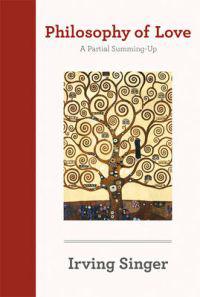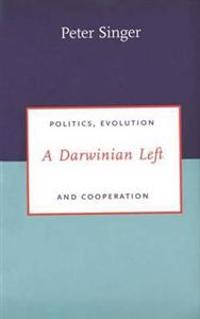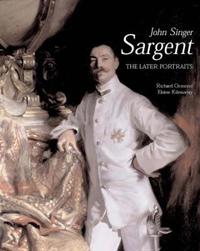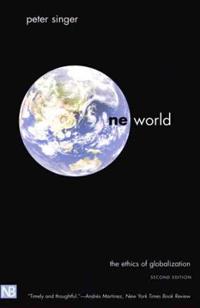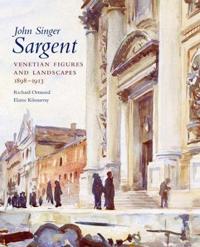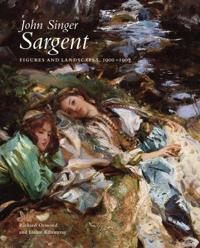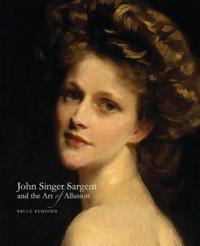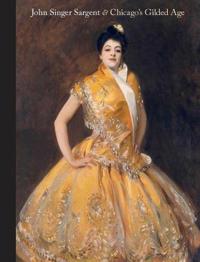Meaning in Life: v. 2: Pursuit of Love (Övrig)
avIrving Singer
ISBN: 9780262513579 - UTGIVEN: 2010-01-08With a new preface by the authorIn his widely acclaimed trilogy The Nature of Love, Irving Singer traced the development of the concept of love in history and literature from the Greeks to the twentieth century. In this second volume of his Meaning in Life trilogy, Singer returns to the subject of h[...]
The Harmony of Nature and Spirit (Pocket)
avIrving Singer
ISBN: 9780262513586 - UTGIVEN: 2009-12-31Mozart and Beethoven: The Concept of Love in Their Operas (Övrig)
avIrving Singer
ISBN: 9780262513647 - UTGIVEN: 2010-03-23Music, language, and drama come together in opera to make a whole that conveys emotional reality. In this book, Irving Singer develops a new mode for understanding and experiencing the operas of Mozart and Beethoven, approaching them not as a musical technician but as a philosopher concerned with th[...]
Philosophy of Love (Häftad)
avIrving Singer
ISBN: 9780262516174 - UTGIVEN: 2011-02In 1984, Irving Singer published the first volume of what would become a classic and much acclaimed trilogy on love. Trained as an analytical philosopher, Singer first approached his subject with the tools of current philosophical methodology. Dissatisfied by the initial results (finding the chapter[...]
Modes Of Creativity (Pocket)
avIrving Singer
ISBN: 9780262518758 - UTGIVEN: 2013-02-08Philosophical reflections on creativity in science, humanities, and human experience as a whole.
Reality Transformed: Film as Meaning and Technique (Pocket)
avIrving Singer
ISBN: 9780262692489 - UTGIVEN: 2000-10-11A Touch of Blossom: John Singer Sargent and the Queer Flora of Fin-de-Siecle Art (Inbunden)
avAlison Syme
ISBN: 9780271036229 - UTGIVEN: 201010A Touch of Blossom considers John Singer Sargent in the context of nineteenth-century botany, gynecology, literature, and visual culture and argues that the artist mobilized ideas of cross-fertilization and the hermaphroditic sexuality of flowers in his work to "naturalize" sexual inversion. In conc[...]
The Hidden Isaac Bashevis Singer (Pocket)
avSeth L. (EDT) Wolitz
ISBN: 9780292728684 - UTGIVEN: 2011-03This collection of essays by leading Yiddish scholars seeks to recover the authentic voice and vision of the writer known to his Yiddish readers as Yitskhok Bashevis[...]
Isaac Bashevis Singer (Pocket)
avJanet Hadda
ISBN: 9780299186944 - UTGIVEN: 2003-03Isaac Bashevis SInger brought the vibrant milieu of pre-Holocaust Polish Jewry to the English-speaking world through his subtle psychological insight, deep sympathy for the eccentricities of Jewish folk custom and unerring feel for the heroism of everyday life. His novels, including "The Family Mosk[...]
The Manor and the Estate (Häftad)
avIsaac Bashevis Singer
ISBN: 9780299205447 - UTGIVEN: 2004-12"The Manor and The Estate"--combined in this one-volume edition--bold tales of Polish Jews in the latter half of the nineteenth century, a time of rapid industrial growth and radical social change that enabled the Jewish community to move from the ghetto to prominent positions within Polish society.[...]
A Darwinian Left: Politics, Evolution, and Cooperation (Inbunden)
avPeter Singer
ISBN: 9780300083231 - UTGIVEN: 200003In A Darwinian Left, Peter Singer argues that the political left has misunderstood Darwinian ideas and as a result been hostile to the application of Darwinian thinking to politics. Those on the political left who seek a more egalitarian society should instead embrace evolutionary ideas and learn ho[...]
John Singer Sargent: Portraits of the 1890s; Complete Paintings: Volume II (Inbunden)
avRichard Ormond, Elaine Kilmurray, Warren Adelson
ISBN: 9780300090673 - UTGIVEN: 2002-10-01John Singer Sargent
ISBN: 9780300098068 - UTGIVEN: 2003-12This sumptuous book is the third volume of the definitive catalogue raisonne of the work of the American painter John Singer Sargent (1856-1925). Comprising over two hundred portraits and portrait sketches in oil and watercolor painted between 1900 and the artist's death in 1925, this book completes[...]
One World (Häftad)
avPeter Singer
ISBN: 9780300103052 - UTGIVEN: 200405Known for his original and courageous thinking on matters ranging from the treatment of animals to genetic screening, Peter Singer now turns his attention to the ethical issues surrounding globalisation. In this provocative book, he challenges us to think beyond the boundaries of nation-states and c[...]
John Singer Sargent
ISBN: 9780300117165 - UTGIVEN: 2006-10From 1874 to 1882, John Singer Sargent (1856--1925) produced more than 200 paintings and water-colors aside from portraiture, including figures in landscape settings, architectural studies, seascapes, subject paintings, and studies after old masters. From powerful studies of models in Paris in the m[...]
John Singer Sargent (Inbunden)
avRichard Ormond, Elaine Kilmurray, Richard H. Finnegan
ISBN: 9780300141405 - UTGIVEN: 200905Throughout his career - and particularly in the period from 1898 to 1913 - John Singer Sargent painted the spectacular architecture and scenes of everyday life in Venice, as he sat alongside the Grand Canal or in a gondola in the sleepy side canals. This lavishly illustrated book presents all the lu[...]
John Singer Sargent (Inbunden)
avRichard Ormond, Elaine Kilmurray, Warren (FRW) Adelson
ISBN: 9780300161113 - UTGIVEN: 2010-11Volume Five of the John Singer Sargent catalogue raisonne encompasses a remarkably productive sixteen-year span when Sargent's creative energies were expressed in new and exciting aesthetic ventures. The young artist moved from Paris to London and successfully ignited his career as a portrait painte[...]
John Singer Sargent (Inbunden)
avRichard Ormond, Elaine Kilmurray, Richard H. Finnegan
ISBN: 9780300177350 - UTGIVEN: 201211From 1900 to 1907, John Singer Sargent (1856-1925) travelled considerably, visiting the Alps, Italy, Spain, Norway, and Palestine. In Palestine in 1905, he painted a significant group of oils and watercolours as well as a group of studies of the Bedouin. It was during this burst of artistic producti[...]
John Singer Sargent (Inbunden)
avRichard Ormond
ISBN: 9780300177367 - UTGIVEN: 2014-08After John Singer Sargent (1856-1925) determined to curtail his internationally successful portrait practice, he had more freedom to paint where and what he wanted. Volume VIII of the John Singer Sargent catalogue raisonne transports us to the artist's most beloved locations, often with his friends [...]
John Singer Sargent
ISBN: 9780300177374 - UTGIVEN: 2017-01The final volume in a full survey of the work of John Singer Sargent, covering his late watercolors, designs for the Boston murals, and work as an official War Artist The last in a series of books devoted to the work of John Singer Sargent (1856-1925), this volume covers the figure and landscape wor[...]
The Most Good You Can Do (Inbunden)
avPeter Singer
ISBN: 9780300180275 - UTGIVEN: 2015-04Peter Singer's books and ideas have been disturbing our complacency ever since the appearance of Animal Liberation. Now he directs our attention to a new movement in which his own ideas have played a crucial role: effective altruism. Effective altruism is built upon the simple but profound idea that[...]
John Singer Sargent and the Art of Allusion
ISBN: 9780300219302 - UTGIVEN: 2016-10A revealing, interdisciplinary exploration of the brilliant visual quotations in the work of the celebrated grand-manner portraitist The work of portraitist John Singer Sargent (1856-1925) has come to epitomize the glamour and anxiety of his age. In this innovative study, Bruce Redford reveals the w[...]
John Singer Sargent & Chicago's Gilded Age
ISBN: 9780300232974 - UTGIVEN: 2018-07This groundbreaking study focuses on John Singer Sargent's sustained, yet largely overlooked, involvement with Chicago's vibrant Gilded Age culture. Documenting the artist's personal connections to the city and the prominence of his work in Chicago collections, Annelise K. Madsen explores Sargent's [...]





